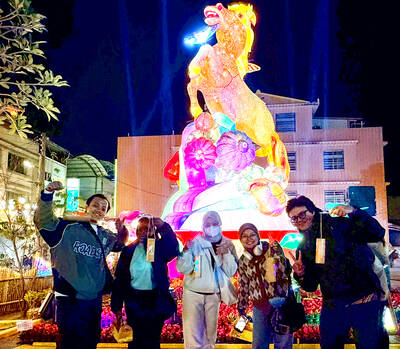Hong Kong singer Sandy Lam won the final of “Singer 2017,” singing the song “Maybe Tomorrow” in the final episode of the show, broadcast live on Hunan TV last Saturday. The 51-year-old singer, backed up by pop diva Chang Hui-mei, better known as A-mei, sang a duet in perfect harmony, with their flawless chorus and high notes winning much praise from the audience.
From the Republic of Kazakhstan, 22-year-old singer Dimash Kudaibergen was the first runner-up in the singing contest. Taiwanese singers also had outstanding performances in the final show. Rock band “Lion,” led by Jam Hsiao, was the second runner-up, and singer Terry Lin won fifth place.
Hsiao said he was so nervous before the final show that he had a sensation of being unable to swallow his saliva. He explained that this was a kind of muscular symptom, adding that it would be no fun if the contest did not make him nervous.

Photo: copied by Tsai Chen-yi, Liberty Times
照片︰自由時報記者蔡琛儀翻攝
(CNA, translated by Eddy Chang)
香港歌手林憶蓮上週六以「也許明天」一曲,在湖南衛視現場直播的「歌手二○一七」節目總決賽奪冠。現年五十一歲的林憶蓮,與助唱的流行天后張惠妹(阿妹)展現絕佳默契,和聲完美並互飆高音,讓觀眾聽得大呼過癮。
來自哈薩克共和國,年僅二十二歲的歌手迪瑪希在該歌唱比賽榮獲亞軍。台灣歌手在決賽的表現也相當精采,蕭敬騰率領的搖滾樂團「獅子合唱團」奪下第三名,歌手林志炫拿下第五名。
蕭敬騰說比賽前心情很緊張,喉嚨像有口水吞不下去,他解釋這是一種肌肉的症狀,但比賽不緊張就不好玩。
(中央社)

A: Harvard professor Robert Waldinger’s “7-day Happiness Challenge” includes: Day 1: Take stock of your relationships; Day 2: The secret power of an 8-minute phone call; Day 3: Small talk with strangers has big benefits. B: That’s not too hard. What’s next? A: Day 4: Why you should write a “living eulogy;” Day 5: The importance of making work friends; Day 6: Don’t cancel those social plans. B: Good ideas. What’s the final challenge? A: Day 7: Keep happiness going all year long. So, I’m inviting some friends to the Taipei Lantern Festival today to build good relationships. Wanna

★ 本文由生成式 AI 協作,本刊編輯編修。 For tourists looking for a scenic way to spend an afternoon in Kaohsiung, heading to the British Consular Residence of Takao is the perfect choice. Its elevated position allows one to take in the bustling Kaohsiung Harbor to the east and the dazzling sunset over Sizihwan Bay to the west. This elegant red-brick building also serves as a portal to the city’s rich history. Interestingly, for 70 years, many people mistakenly identified this residence as the actual consulate. The history of “Takao,” the former name of Kaohsiung, began its international chapter in the mid-19th century. As European powers

★ Bilingual Story is a fictionalized account. 雙語故事部分內容純屬虛構。 The fog came before the knock. It covered the street and pressed against the window. Chao Gung-dao lit a small oil lamp, but his makeshift hut stayed dim. Another knock. Chao opened the door. The inspector stepped inside and removed his hat. He did not smile. “You remember me?” the inspector said. Chao resented the question. The inspector looked around the small room. His eyes stopped on a wooden box resting on a low beam above Chao’s head. “What is that?” Chao stayed silent. The inspector pulled the box down and

★ 本文由生成式 AI 協作,本刊編輯編修。 Continued from yesterday(延續自昨日) https://www.taipeitimes.com/News/lang Kaohsiung’s deep connection with the sea continues to thrive, with Kaohsiung Harbor remaining a crucial hub for global shipping. In addition to the port, the city has emerged as a major player in another world-class maritime industry—yacht manufacturing, responsible for producing 80 percent of all Taiwan-made yachts. The yacht industry in Taiwan originated in the post-World War II era, when the US military presence in Taiwan provided local boat builders with guidance on making wooden yachts. The resulting craftsmanship was so exquisite that orders soon poured in. In 1977, Taiwan replaced Canada as the main yacht